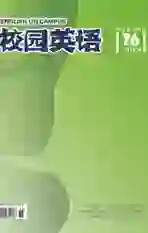An Analysis of the Heroine in Cat in the Rain by Ernest Hemingway
2018-09-08孙薇薇
【Abstract】Cat in the Rain, Hemingways short fiction, portrays a woman identified with the traditional gender role. By analyzing the heroines relationship with the Cat, the hotel owner and her husband, it is indicated that she is subject to a dependent life with the patriarchal authority.
【Key words】Heroine; Gender role; Cat in the Rain; Patriarchal
【作者簡介】孙薇薇,河南师范大学外国语学院。
Introduction
Cat in the Rain written by Hemingway depicts a simple but meaningful story against the background of the feminist movement. An American couple is staying in an Italian hotel, and the wife finds a poor cat trapped in the rain. She goes out to save it but fails. Eventually, in the evening the maid, asked by the hotel owner, brings the wife a cat. Most critics hold the view that the wifes desire for the cat represents her awakening and her resistance to such a patriarchal society. However, an examination of the heroines respective relationship with the cat, the hotel keeper and her husband reveals that she wants to go back home to a dependent life and accepts the traditional value of gender.
The Woman and the Cat
The cat given by the hotel owner is not the one the woman searches for at the beginning. The heroine calls this animal that she tries to rescue as “a cat”, “the cat”, “herself”, “she”, “that kitty”, “the poor kitty”, “the cat” and “it”. The application of definite articles and demonstrative pronouns specifically refers to the poor “cat” in the rain. However, a different “cat” appears in the following conversation.
“A cat!” the maid laughed. “A cat in the rain!”
“Yes, ” she said, “under the table.” Then, “Oh, I wanted it so much. I wanted a kitty.”
After the second occurrence of “wanted”, she employs “a kitty”. She applies “A” instead of a determiner, signifying a fundamental shift in her desire. That is to say, she just wants a cat which is not limited to the one in the rain.
The heroine places different feelings on the two kinds of “cat”. Her intention of saving the “cat” in the rain can be understood as her self-consolation, for she isnt satisfied with her depressing conditions and wants to display her own power. The second kind of “cat” refers to “a pet cat” considering her other needs: long hair, silver, candles, and new clothes. This implies that she wants to live a comfortable and distinguished life, and a pet cat is a part of her superior materialistic life. From “cat in the rain” to “a pet cat”, the heroine changes her desires from self-liberation to mans care and protection just as a pet cat does. She is dependent and typical of a womans traditional gender role.
The Woman and the hotel-keeper
By analyzing the relationship between the woman and the hotel-keeper, it can also be found that she longs for a return to traditional gender roles.The hotel keeper waits on the woman and caters to her every need. He bows to her, sends a maid with an umbrella to protect her from the rain, and gives her a cat at the storys end. As a result of his protection, the woman enjoys this treatment though she feels small and tight inside. This reflects that she submits to the feeling of worthlessness without realizing it is fake happiness of self-worth, which also demonstrates she accepts the traditional view of women: weak, helpless and dependent.
The Woman and her Husband
Its commonly believed that her husband stands for mens superiority. However, after a careful examination of the plot, it can be concluded that he is a supporter of womens liberation in the 20th century. He likes his wifes short hair which is the opposite to traditional aesthetic standard by which women are judged. In addition, he respects his wifes choice when she refuses his help, for he believes she has the ability to deal with the cat problem. When the woman expresses her irrational needs, he encourages her to read a book rather than think too much about the material life, hoping she can be independent, confident, and thoughtful. But the woman really wants her husbands care and protection, which also shows she subjects to a dependent life with the patriarchal authority.
Conclusion
After analyzing the heroines relationship with the Cat (a symbolic change from self-liberation to dependence), the hotel owner and her husband, it can be seen that the heroine is eager for a dependent life with care and protection from her husband, just like a pet cat, which shows she identifies with a womans traditional gender role.
References:
[1]Kert,Bernice.The Hemingway Women:Those who loved him— the wives and others[M].New York:W.W.Norton&Company;,1983.
[2]Lynn,Kenneth S.Hemingway[M].New York:Simon and Scheuster,1987.
